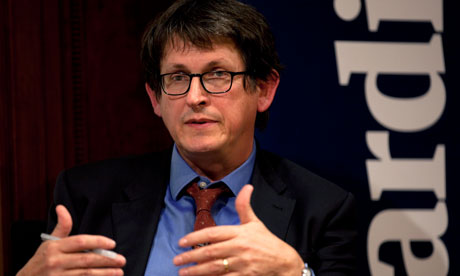It won't help ease suspicions when Mail editor-in-chief Paul Dacre leads the back-slapping over the announcement of changes to the Editor's Code, to begin on January 1st 2016.
Hacked Off attacked the announcement, claiming not only that the changes ignored some of Leveson's specific proposals but also that there 8 ways in which the Code was actually watered down.
The two additions concern coverage of suicides and gender discrimination (I wonder if that will eventually require updating to specifically include transgender discrimination, on which the Press have an abysmal record?).
It is significant too that headlines are now included in the most-abused clause, Clause One on accuracy. The Code's preamble also specifies that complaints need to be addressed swiftly through IPSO. The press remains split on regulation, with several papers still refusing to sign up to IPSO (or rivals), but the body it funds, PressBOf, is making a concerted push here to shore up the image and acceptance of IPSO as the sole legitimate press regulator.
A continuing Conservative governemnt will have no appetite to upset a largely supportive press; a future Corbyn-led Labour government presumably would ... but if the mainly right-wing press get their way and their incessant anti-Corbyn flak (also noticeable in the supposedly left-wing Guardian) sees him replaced by a Blairite right-winger their path, remarkably, looks clear once more.
The Press just keep supping in that last chance saloon...

